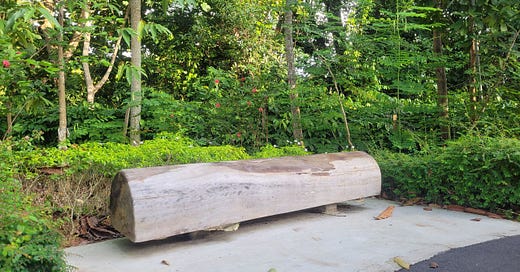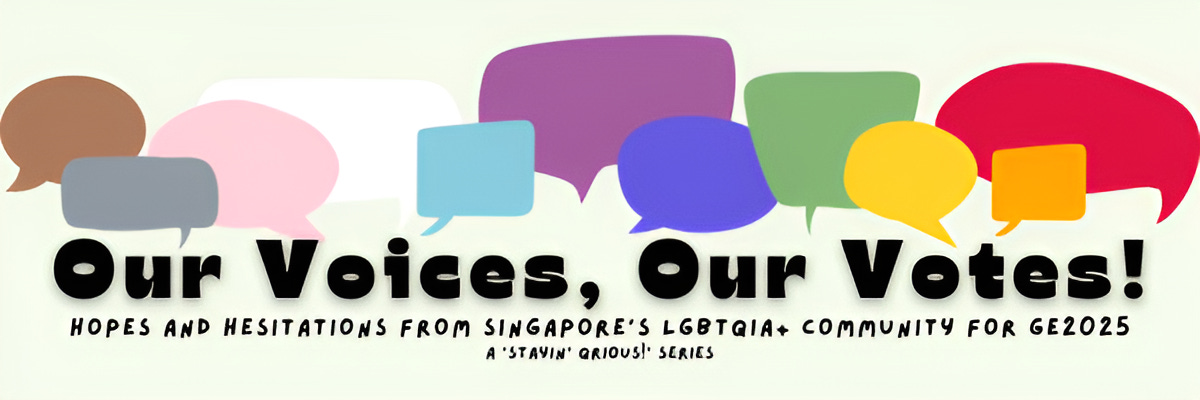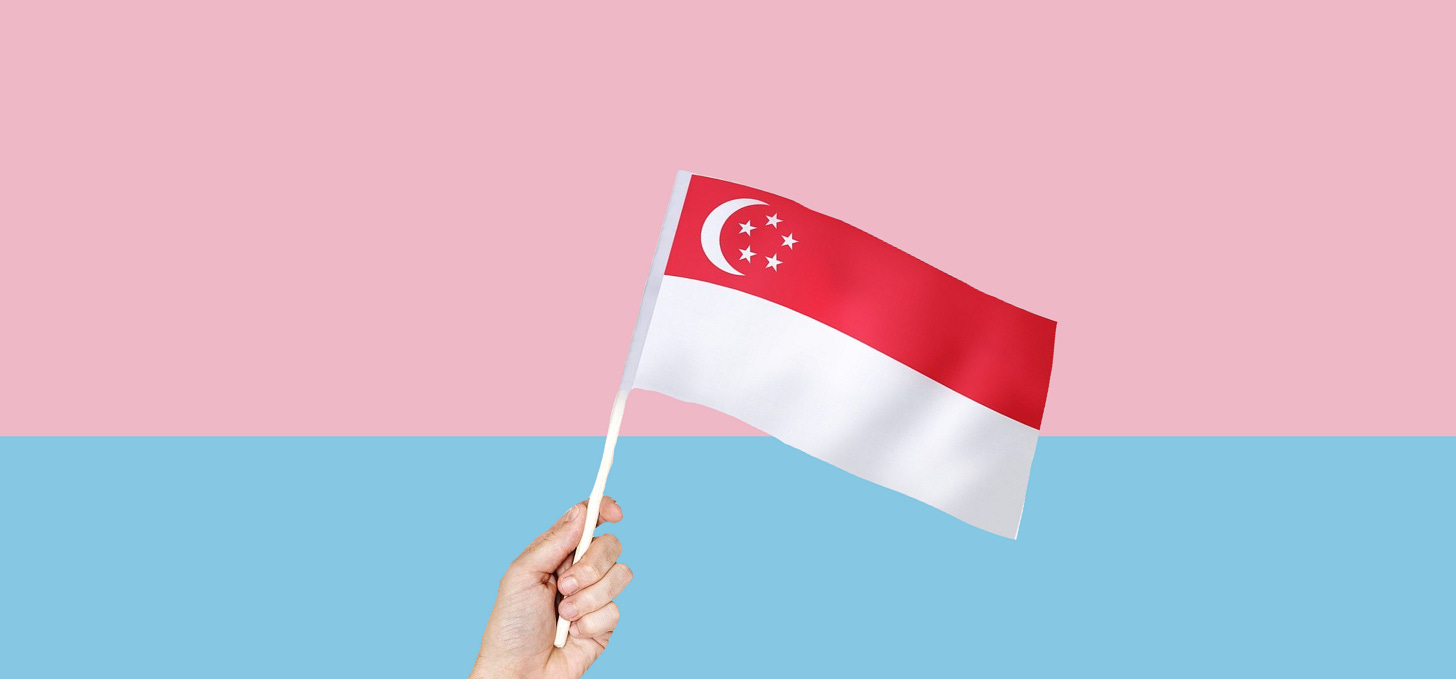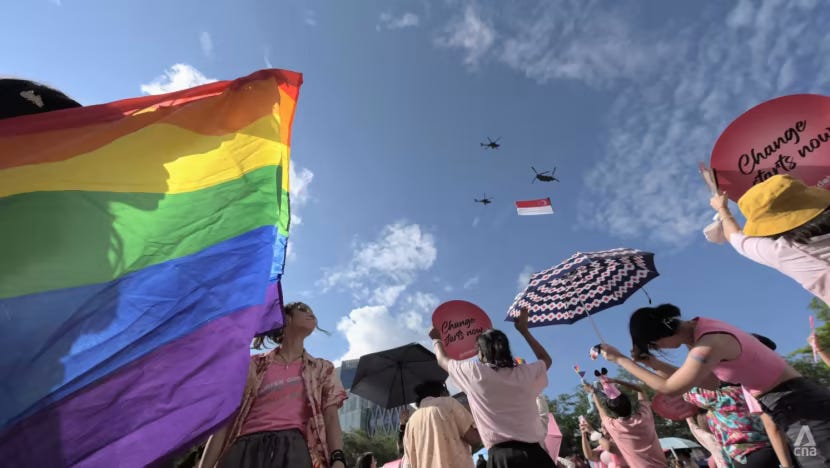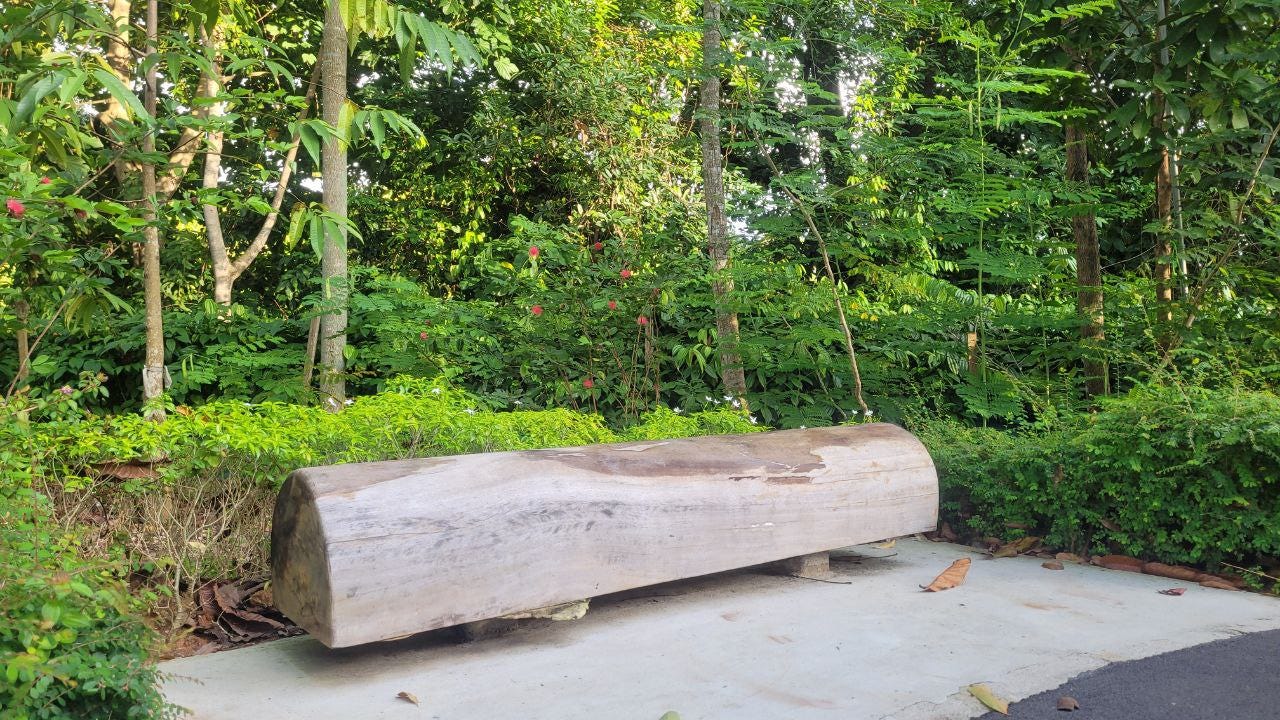🗣️ Our Voices, Our Votes: Charlotte 🗳️
“A lot of queer people I know just want to live a Singaporean life, on equal terms.”
As we get closer to GE2025, I have been thinking a lot about whose hopes, worries, and dreams we hold and whose we leave behind. Our Voices, Our Votes is my small attempt to make more space for LGBTQIA+ Singaporeans to share what is on their minds. This is an invitation to slow down, to listen a little more carefully to different lived experiences, and to stay openhearted to what we might learn along the way.
Charlotte (she/her) is the first person I had the privilege of speaking with for this series. She shares her hopes for a more affordable, fair, and sustainable Singapore, her frustrations about feeling unseen in policies, and her fears about where our future might be headed. What stayed with me most was her quiet empathy and determination, a reminder that Singapore can be, and must be, a safer place for trans individuals and all who call this home.
Charlotte (she/her), trans, 25–34
Q: How are you feeling about the upcoming general elections?
A: Well, this is my first time voting in the general elections; I've only voted in the presidential election before.
When I filled out the survey, it was just before 19 April , right after the writ of Election was issued. That timing mattered personally to me because 19 April was also the day when I found out that a lot of people from the incumbent team in my GRC were replaced.
Q: Can you tell me more about how you felt about those candidate changes?
A: Honestly, some of the outgoing Members of Parliament (MPs), I liked. A few of them had participated in Pink Dot, which meant something to me. But now they've been replaced by someone who used to be a director at MDDI which I felt like a gut punch. IMDA (which is under MDDI) has historically played a role in censoring LGBTQ+ content, so yeah, I didn’t feel good about that.
Q: You're tracing a very direct connection between a new candidate fielded in your GRC for GE2025 and the kind of discrimination you’ve experienced as a voter?
A: Yeah, a little bit.
Q: Is that shaping how you’re deciding who to vote for?
A: I don’t want to be a single-issue voter. Over the next two weeks, I’m going to look at what the different parties are saying. The opposition in my GRC just released their manifesto, and I’m curious to see what they’re offering.
Q: Are party manifestos the biggest deciding factor for you, or do candidates' personal stances matter more?
A: I might be blurring the two. I tend to see a party's manifesto and the candidate’s stance as closely linked. But maybe I need to tease out the differences, especially if I get to meet them in person.
Q: So direct engagement with candidates might be the deciding factor for you—if that happens?
A: Yeah, if it happens. But if I don’t get to meet them, because of my schedule or theirs, I’ll fall back on their manifestos.
Q: Do you think you’ll cross paths with them during walkabouts?
A: Honestly, I have no idea what their routes are. It depends on my work schedule too.
Q: You pointed out that your top three issues this election are cost of living, LGBTQ+ rights, and environmental sustainability. Why these three?
A: They all connect to equity and justice. Some people might call these "first-world problems," but after 60 years of economic development, we should be looking beyond GDP. It's about who gets access, who’s left behind.
Take cost of living; it’s not just about helping the destitute with vouchers. We need to think about the middle class, too.
Support needs to expand to those who were promised a future with jobs and housing but feel like those dreams are slipping away, not just those on the extreme margins.
Q: So to clarify, you’re calling for broader inclusion in policy making—especially financially?
A: Exactly.
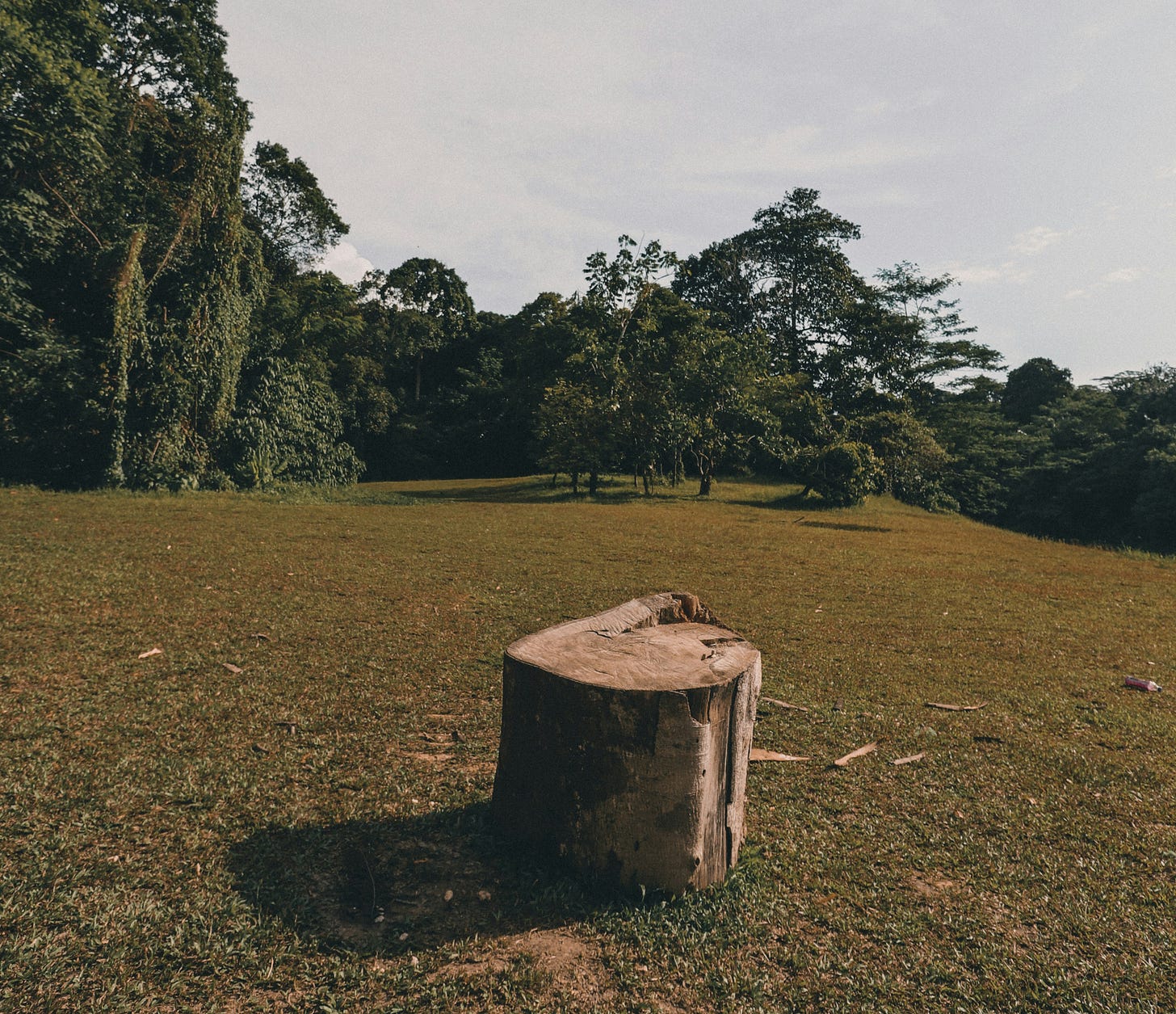
Q: Why did you also highlight environmental sustainability as a key issue?
A: It’s about future-thinking—just like LGBTQ+ rights. I think the biggest long-term challenge we face is climate change. I don’t buy the idea that AI is our biggest threat. We need to rethink how we live—not just recycling, but energy, transport, housing. Even nuclear energy could be part of the conversation. We can't just tweak things; we need to imagine alternatives.
Q: You also mentioned that forward-thinking societies should apply this mindset to LGBTQ+ rights. Can you expand?
A: Yeah. Countries like the US and UK were once seen as models of inclusion, especially before Trump. They started acknowledging people who were invisible under heteronormative systems—like trans folks. I identify as trans.
The repeal of 377A was a big deal, but what came after—like putting the definition of marriage into the Constitution—felt like a step backward.
Many queer people just want to live Singaporean lives, on equal footing with cishet (cisgender heterosexual) folks.
But right now, we can't. I want to see whether people like me are being taken care of. People who want to marry, or who want to change their legal identity to reflect who they really are.
Q: To clarify, you mean changing legal gender recognition on IDs for trans and non-conforming individuals?
A: Yes, exactly. Legal recognition on official documents matters a lot.
NB: The current requirements for legal gender recognition in Singapore are that the trans person’s genitalia must have been “completely changed from male/female to female/male genitalia”, with this confirmed via a genital examination by a locally licensed urologist, gynaecologist, endocrinologist or plastic surgeon.
These requirements were instituted in late 2017, without community consultation. Prior to that point, the wording of the legal provision required that a trans person had “undergone a sex change procedure”, and letters from the surgeons or hospitals that performed the surgeries were sufficient without the need for further examination by a separate doctor. - from TransgenderSG
Q: You mentioned backlash against LGBTQ+ rights is happening overseas and might be surfacing here. Have you experienced this yourself?
A: Definitely. I don’t want to dwell on personal stuff, but take the Science Centre incident—where a queer-themed talk was pulled. That felt like the peak of backlash in 2024. But then Goh Meng Seng spoke out against LGBTQ+ people—in my GRC.
Q: What were your thoughts on the rumour that a queer candidate might be fielded in your GRC?
A: I had mixed feelings. I’ve never met Deryne, but I know she’s involved in Pink Dot, and I respect that. It shows commitment to the cause. But I also think about my MP, Louis Ng. He’s very vocal, but how much change has actually resulted from that?
It worries me that even if Deryne is elected, queer rights might be sidelined or co-opted. Look at the Cass Report in the UK—science can be used to harm the community from within. Like someone saying, "I’m a lesbian but trans women aren’t women." That’s dangerous.
Q: So you’re concerned about tokenism—that symbolic representation might harm the cause?
A: Yeah. Some conservatives in the US want a female president not to promote feminism, but to shut it down. That’s not real representation. It’s control.
Q: In other words, one queer MP isn’t enough if the system doesn't change.
A: Exactly. Deryne might be the first openly queer person aligned with the PAP, but not the first ever. Vincent Wijeysingha came out in 2011 with the SDP. There may have been others who weren’t out. But openness matters. If you’re running for high office, the public deserves to know who you are.
NB: Vincent Wijeysingha was asked to explain his and the SDP’s stance on homosexuality in 2013 by then Minister for Community Development, Youth and Sports, Dr Vivian Balakrishnan, as a video surfaced where Vincent attended a forum which "discussed the promotion of the gay cause in Singapore". - Yahoo News Singapore
Q: What does a better future look like to you as an LGBTQIA+ person in Singapore?
A: I work in media, and representation matters. Right now, broadcast rules limit what stories we can tell. That affects how queer people are seen—and whether we’re seen at all.
Q: You’re referring to mainstream media specifically?
A: Yes. Independent media is out there—YouTube, podcasts, etc.—but they don’t reach as many people. I want to see change in places like free-to-air TV, where portrayals of queer people have historically been negative. That platform still matters, especially to older folks.
NB: LGBT media content continues to warrant higher age ratings even as the Singapore Government repealed Section 377A of the Penal Code, said the Ministry of Communications and Information - CNA
Q: If you were elected to political office, what would be your first act?
A: Oh i’ve answered a version of this before. I shared this to my friends, with regards to a r/AskSingapore thread. In four day, I will:
Day 1: Legalize same-sex marriage.
Day 2: Allow legal gender changes without requiring surgery.
Day 3: Criminalize all forms of LGBTQ+ discrimination, ensuring that no institution—including religious organizations—is exempt from accountability
Day 4: Write all of it into the Constitution, then step down.
Q: Beyond LGBTQ+ issues, what else would you focus on?
A: The environment. But not just the basics. I’m talking about real issues, like heat stress in rental flats with no air-con. We don’t talk enough about how inequality intersects with climate realities. That needs to change.
As we head toward GE2025 and beyond, Charlotte reminds us that the big issues like making life affordable, protecting the environment, and ensuring everyone feels included, affect all of us, even if we experience them differently.
As you read her story, maybe take a moment to think:
How does the intersection of rising costs, climate change, and questions about belonging affect people in your circle?
Are there more common hopes between us than we often realise?
How can we stay curious about different experiences, especially those who live on the margins, and make space for more voices when we think about Singapore’s future?
If you have thoughts, encouragement, or reflections for Charlotte, feel free to leave a comment. Let’s listen with open hearts and keep imagining a Singapore where more people feel seen and supported.
Disclaimer:
The views and opinions expressed in these interviews are those of the individuals themselves and do not necessarily reflect my own. This series aims to amplify a diversity of voices within the LGBTQIA+ community. No single conversation can represent the full breadth of our lived experiences.
Once again, my heartfelt thanks to all the interviewees for trusting me with their stories.


